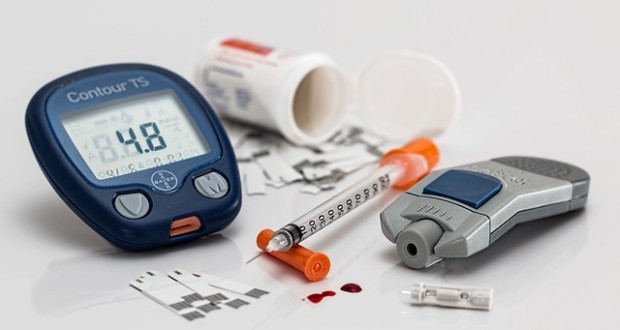For many of us, the word “diabetes” is associated with images of daily insulin injections, finger-pricking and other unpleasant activities. Indeed, these things are part and parcel of the lifestyle which can be expected for people who develop diabetes in childhood or in early adulthood. For the majority of diabetics, however, who develop the disorder later in life, diabetes can be controlled by diet and a switch to a healthier lifestyle.

Non-insulin dependent diabetes occurs mainly in people aged more than 40, frequently in people who are inactive and overweight. In this type of diabetes, insulin is still produced by the body, but the body cells resist its action. Insulin, a hormone produced in the pancreas, is used by the body to transport glucose into body cells.
In most adult-onset diabetes, glucose cannot be efficiently stored away in body cells for later use, and builds up in the bloodstream. This is eventually excreted by the kidneys, a process which results in large volumes of urine being produced, and a high demand for water by the diabetic. Frequent urination and an unquenchable thirst are frequently the first symptoms of non-insulin dependent diabetes.
If the newly diagnosed diabetic is overweight, the condition can sometimes be treated quite simply through weight loss.
In many cases, the resistance the body cells have developed to insulin is lost once excess weight is lost, and the insulin which is already present can resume its work. Doctors generally recommend that sufferers of this type of diabetes eat a diet rich in complex carbohydrates and fibre, but low in sugar, fat and total energy.
Surprise, surprise, it sounds just like the kind of diet nutritionists recommend for all of us, not just those with diabetes.
The aim of a reduced sugar diet is to cut the intake of simple sugars until they make up less than 5 percent of total energy intake, to reduce fat, alcohol and sodium, and to ensure that more than 50 percent of daily energy intake comes from complex carbohydrates.
Through good eating habits, the diabetic aims at a nutritionally balanced diet, an ideal body weight and the maintenance of good health by control of blood-sugar levels, thus delaying or preventing the onset of long-term complications.
Diabetics are advised to eat a variety of foods from each of the basic five groups each day.
The recommended servings from each group will generally supply adequate amounts of protein, fat, carbohydrate, vitamins, minerals, fiber and nutrients. Water is an essential part of the diet. Typical servings are as follows:
- Bread and cereals: (preferably whole grain), four serves daily, one serve being one slice of bread or bowl of cereal.
- Fruit and vegetables: four serves daily, one serve being perhaps a piece of fruit, half a cup of unsweetened canned or stewed fruit or juice or one portion of vegetable.
- Meat, fish, eggs or vegetable protein: one serve daily, 75 – 100 grams of meat or three-quarters of a cup of cooked beans or one egg.
- Milk foods: adults, 300ml of milk or yogurt or 40g of cheese. Children, teenagers, expectant or nursing mothers, 600ml.
- Butter or table margarine, one tablespoon daily.
The real difference in the diet prescribed for a diabetic is that food should be eaten at regular times every day, so that fluctuations in blood glucose levels remain within a narrow range of acceptability. A strict diabetic diet assigns values to particular portions of food, depending on their content of complex carbohydrates, and the diabetic spreads the por tions across the day, to ensure a steady intake of suitable foods.
Another disorder in glucose metabolism is hypoglycemia. In people suffering from the condition, the consumption of sugars triggers a sudden sharp rise in insulin, which rapidly depletes the glucose, causing the body to produce adrenaline, which in turn produces such symptoms as faintness, nausea and dizziness.
People who suffer from hypoglycemia, like people who develop diabetes later in life, can often control the disorder through a strict diet.
Chanel is a dietitian, health researcher and blogger who loves health, science and writing. She just finished writing about diet and nutrition tips, such as 7 day fruit and vegetable diet plan for weight loss, 24 ways how to get back on track with diet, and cardiac diet foods to eat.












